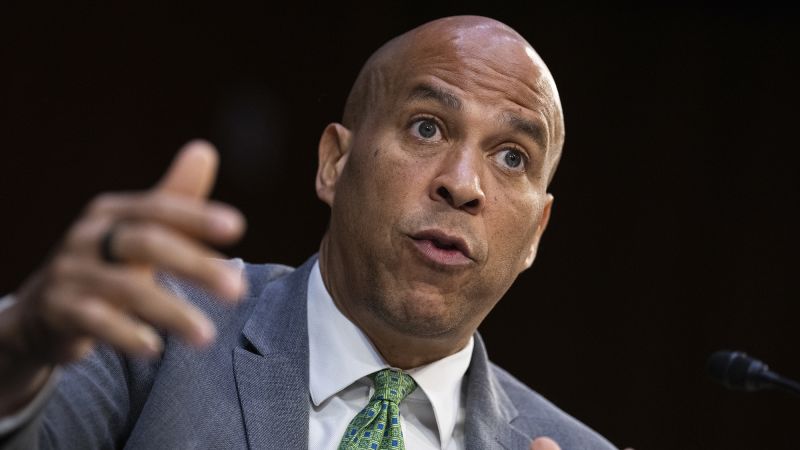A White House-backed border security package in the Senate faced a setback when Sen. Cory Booker announced he would not support the legislation. This move highlights the divisions within the Democratic Party on this issue, and the party’s efforts to shift blame to Republicans may be undermined by internal disagreements. The bill, which is set to be voted on Thursday, was not expected to pass due to GOP opposition and Democratic divisions. Democrats are hoping to pressure Republicans into action on border security, a key issue in an election year.
Booker’s decision not to support the bill draws attention to the internal conflicts within the Democratic Party, and further defections from Democrats could complicate or undermine the party’s messaging efforts. In a statement, Booker explained that while he previously voted to advance a bipartisan immigration deal to continue the debate on border challenges, he could not support the current bill due to provisions that would violate American values. The original bill in February, which was part of a broader bipartisan package including foreign aid, failed to pass after facing criticism from top House Republicans and former President Donald Trump.
A number of Democratic senators, including Bob Menendez, Alex Padilla, Elizabeth Warren, and Ed Markey, as well as Independent Senator Bernie Sanders, opposed the initial bill in February. Senate Majority Leader Chuck Schumer also voted against the measure as a procedural move to potentially bring it back up in the future. Booker highlighted that the original bill included critical foreign and humanitarian aid, which is not present in the current legislation as Congress passed a separate foreign aid package without border provisions.
In addition to the border security bill, the Biden administration faced a setback when the Senate approved a measure rolling back energy efficiency standards for residential gas furnaces. The measure, part of the White House’s efforts to combat climate change, was deemed too stringent and costly by Republicans. Democrats, like Markey, defended the rule as necessary for innovation and environmental protection. The measure, sponsored by Senator Ted Cruz, was supported by Democratic Senator Joe Manchin and Independent Senator Kyrsten Sinema, but is unlikely to pass with a Biden veto.
Overall, the Democrats are facing internal divisions on key issues such as border security and energy efficiency standards. The failure of the border security bill in the Senate, due in part to Democratic defections, highlights the challenges the party is facing in trying to pass critical legislation. The opposition from both Republicans and some Democrats on these issues underscores the difficulties in achieving bipartisan consensus in a politically polarized environment. The outcome of these votes may have significant implications for the Biden administration’s legislative agenda and its ability to enact key policy priorities.













